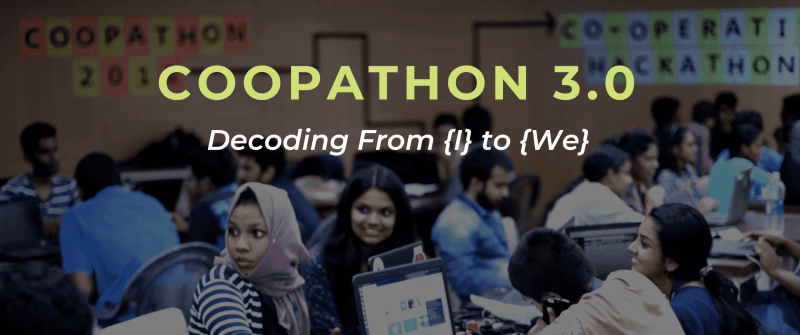
The third edition of the Cooperative Hackathon (Coopathon), developed under the ICA-EU Partnership on cooperative development (#coops4dev), which aims to identify cooperative solutions to contemporary issues, took place on 11-14 December via Airmeet, a virtual platform.
Coopathon 3.0 brings together partners and mentors to provide pre, during, and post-event support, mentorship, and connecting opportunities to enable participants to develop successful solutions.
In his welcoming address Balu Iyer, Regional Director of ICA-AP, highlighted the key focus areas of Coopathon 3.0 – the youth, new technology, and the transition from “I” to “We”.
Over 80 entries from 12 countries were received, with 41 teams shortlisted to participate in the 72-hour hackathon, during which they worked rigorously, received training and support from their mentors, and made their final submissions on 13 December. With an amazing response from the participants, 10 teams were selected as the finalists for the live pitch in front of the judging panel comprising Amaia García Fernández, Co-Leader, Mondragon Team Academy, China & Asia; Jack Sim, founder, Bottom of the Pyramid (BoP) Hub, Restroom Association of Singapore, the World Toilet Organization, and the World Toilet Day Initiative; and Tarun Bhargava, Chair of the International Cooperative Entrepreneurship ThinkTank and Joint General Manager, IFFCO.
All finalists had to make a presentation and answer questions from the judges. They were evaluated on their live presentations, technological relevance, and cooperative or collective models. Inno Games Coop from Indonesia took the first prize, followed by MYCOON from India, with Design for Impact from India coming third. Inno Games Coop is working to create an online cooperative ecosystem through games and other digital products. The model enables anyone with digital and creative skills to join the platform, learn new courses, find teammates, collaborate, and earn money. MYCOON from India grows biomaterials using agriculture residues and mycelium (the vegetative part of a fungus). In the process, they create local youth jobs. Design for Impact, from India, has developed a concept of Learn, Earn, and Invest where people join their platform to learn new skills, use those skills to earn an income, and invest a proportion of their income in further learning.
In the opening ceremony, Sundeep Kumar Nayak, Managing Director of the National Cooperative Development Corporation of India, was the keynote speaker. He said NCDC is championing the cooperative model among the youth and helping to form new cooperatives in the healthcare and agricultural sectors, in line with the government’s vision to double farmers’ income. He pledged to support the successful India-based projects emerging out of Coopathon 3.0.
The closing ceremony featured Rully Indrawan, Secretary to The Ministry of Cooperatives and SMEs, Indonesia. He said: “For cooperatives, it is easy to build a legal entity with only nine people in Indonesia, so we believe that it gives a great opportunity for young people and millennials to choose a cooperative structure for their creative and innovative works.”
Coopathon 3.0 was organised with the support of nine partner organisations from six countries: Indian Farmers Fertiliser Cooperative Limited (IFFCO), TinkerHub Foundation, The Malaysian National Cooperative Movement (ANGKASA), the Indonesian Consortium for Cooperatives Innovation (ICCI), the Indonesian Cooperative Management Institute (IKOPIN), Incubator.coop, KODI, Mondragon Team Academy, Korea, and Travelling University.
More information about the event is available at http://coopathon.coop




